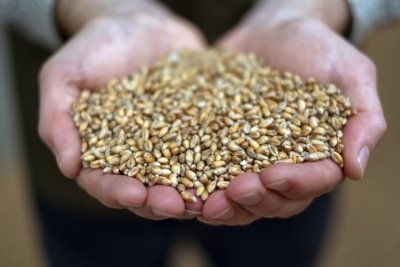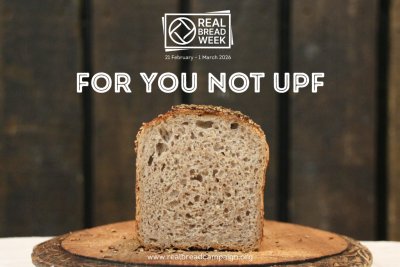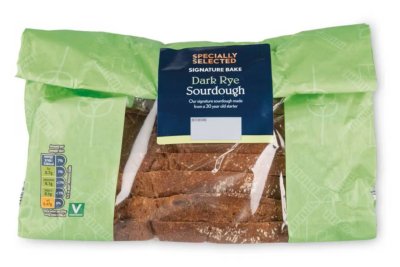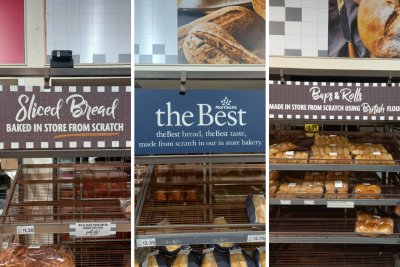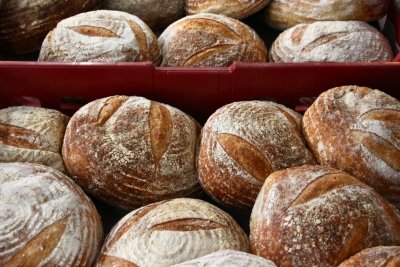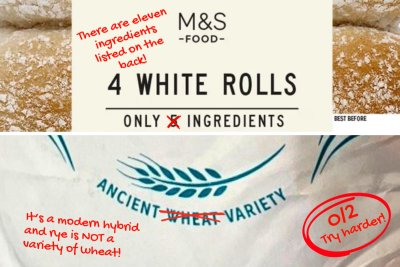Published in Cell Metabolism on 6 June 2017, Bread Affects Clinical Parameters and Induces Gut Microbiome-Associated Personal Glycemic Responses was the result of a trial involving two groups of ten people.
It was designed to look at the subjects’ glycaemic response to two different types of loaf. Members of each group supplemented their usual diet with slices of either an Israeli brand of white factory loaf or of ‘whole grain’* sourdough bread for one week. After two week washout period, each group switched to eating the other type of loaf for a week.
The researchers reported gut microbiota composition remained person-specific throughout the trial, and small but ‘statistically significant’ interpersonal variability in the glycaemic response to the two loaf types. They also stated that the type of loaf that induced the lower glycaemic response in each person ‘can be predicted based solely on microbiome data prior to the intervention.’
The conclusions the researchers drew around differences in other clinical markers were again that variations were personally, rather than generally, related to the type of loaf consumed.
Issues
The key issues the Real Bread Campaign has with taking this study as anything more than an interesting anomaly are:
- The sample size was very small – a total of just 20 participants.
- The length of study – one week - was too short to produce conclusive evidence of the effects of a dietary intervention.
- Its results and conclusions are contrary to the widely accepted evidence that loaves made from higher extraction flours are healthier than those made from highly-refined white flour, and also to research on the potential benefits of sourdough fermentation, some of which is cited in the study itself.
- Two of the researchers act as paid advisors to a company that sells personalised nutrition advice ‘based on your unique biome’.
More research needed
What the Real Bread Campaign believes this study does do, however, is further underline the need for much more research into the effects of different ways of producing a loaf.
Finding ways to make loaves that are healthier and that more people can enjoy is in the interests of the industrial millers and bakers. As such, the Campaign renews its call on members of the Federation of Bakers (which claim a combined turnover of £3.5bn) and of NABIM (£1.25bn stated turnover), and perhaps the £7.85bn sandwich industry as well to contribute to funding extensive, thorough primary research. This would need to be done transparently and in such a way as to avoid any possibility or suspicion of compromising the results.
Being a study of clinical effects, it did not consider any possible wider costs/detriment of industrial loaves, or potential wider benefits of Real Bread made by small independent bakeries.
*The study does not state the definition of ‘whole grain’ they used. While it could mean made using only 100% wholewheat flour, in the USA ‘whole grain’ loaves can be made with a mix of wholewheat and up to 49% refined flour, while in the UK there is no legal definition for ‘whole grain’. For more, see A Wholegrain of Truth?
Real Bread Campaign: Finding and sharing ways to make bread better for us, our communities and planet.

